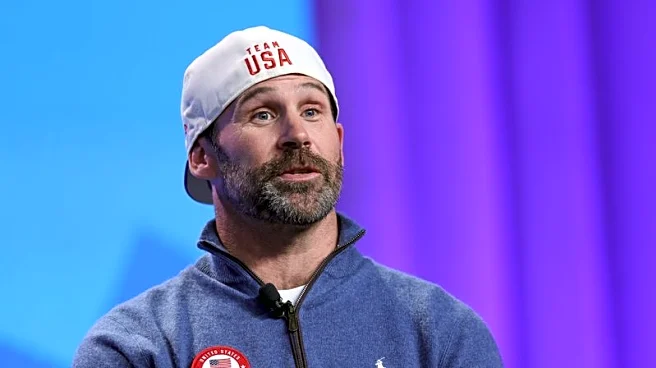What's Happening?
The Australian government is set to implement a ban on social media access for children under 16 starting December 10. This measure will impose fines of up to €28 million on social media companies that
fail to prevent underage users from creating accounts. The ban targets platforms such as Facebook, Instagram, Snapchat, TikTok, and YouTube, while exempting messaging services like WhatsApp and Discord. The initiative aims to address concerns over the mental health impact of social media on young users, as studies indicate a correlation between excessive social media use and mental health issues such as anxiety and depression.
Why It's Important?
This ban represents a significant step in addressing the growing mental health crisis among adolescents linked to social media use. By restricting access, the Australian government hopes to mitigate the negative effects of social media, including exposure to unrealistic beauty standards and the potential development of eating disorders. The move also highlights the need for social media companies to adopt more responsible practices in protecting young users. The initiative could set a precedent for other countries considering similar measures, emphasizing the importance of safeguarding children's mental health in the digital age.
What's Next?
The enforcement of this ban poses challenges for social media companies, which must find effective methods to verify users' ages without relying on government-issued IDs. The Australian government is exploring alternative age-detection technologies, though current trials have shown high false rejection rates. Other countries, such as France and Denmark, are considering similar restrictions, indicating a potential trend towards stricter regulations on social media access for minors. The effectiveness of these measures will depend on the ability of tech companies to adapt and comply with new regulations.
Beyond the Headlines
The ban raises ethical questions about the balance between protecting young users and restricting their access to digital platforms that can offer social connectivity and educational benefits. It also underscores the broader issue of data privacy and the need for transparent practices by social media companies. As governments worldwide grapple with these challenges, the development of comprehensive policies that address both the risks and benefits of social media use for minors will be crucial.











